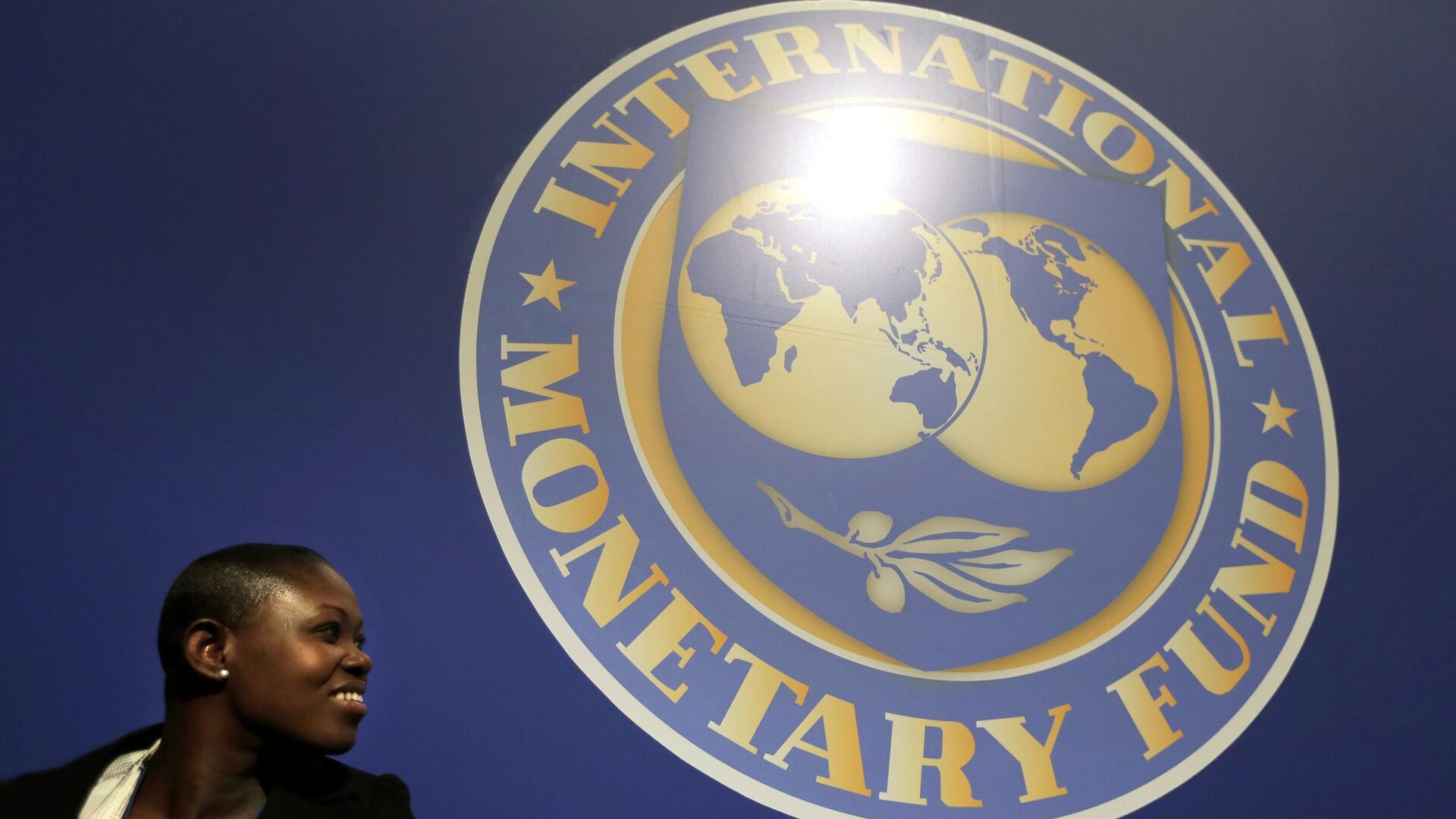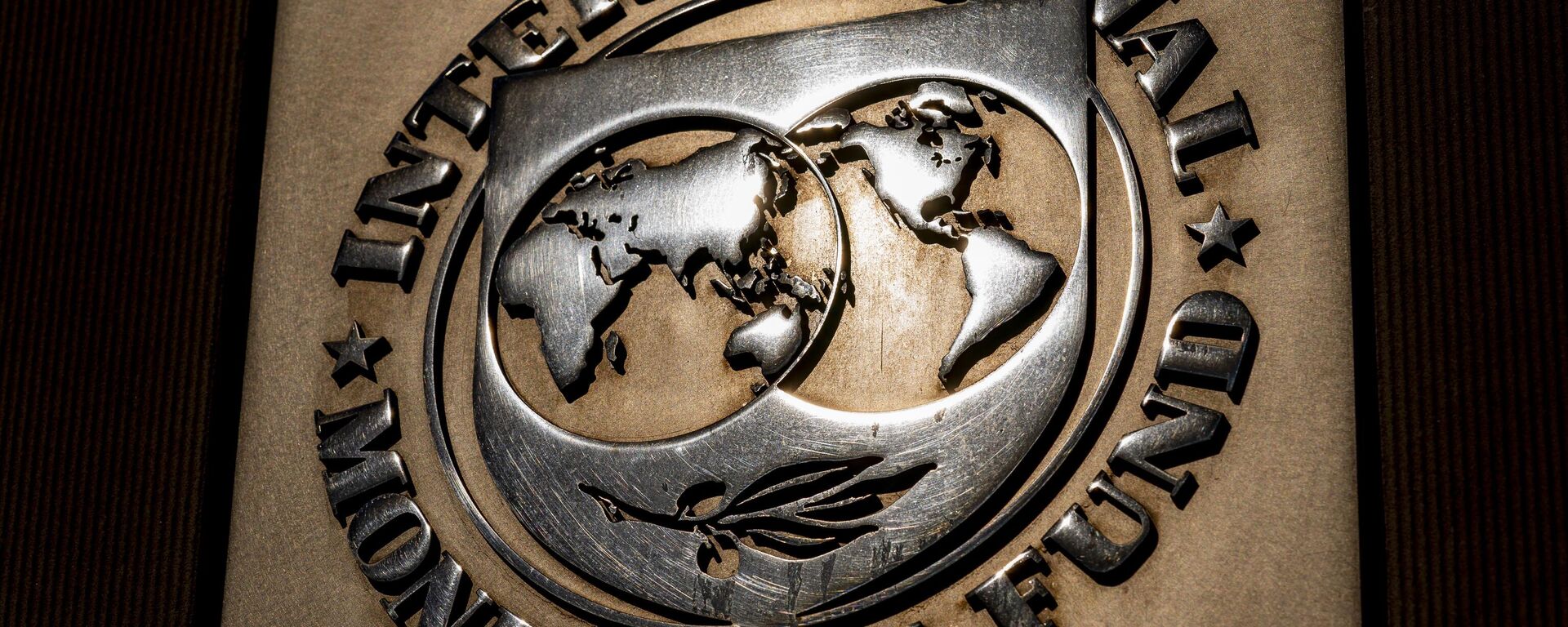https://en.sputniknews.africa/20240508/imf-says-no-clear-signs-of-de-globalization-yet-but-fragmentation-increasing-1066423744.html
IMF Says 'No Clear Signs' of De-Globalization Yet, But Fragmentation Increasing
IMF Says 'No Clear Signs' of De-Globalization Yet, But Fragmentation Increasing
Sputnik Africa
WASHINGTON (Sputnik) – The International Monetary Fund does not see clear signs of de-globalization yet but warns about an increasing fragmentation along... 08.05.2024, Sputnik Africa
2024-05-08T09:35+0200
2024-05-08T09:35+0200
2024-05-08T09:35+0200
economy
united states (us)
china
russia
international monetary fund (imf)
trade
finance
currency
alternative currency
https://cdn1.img.sputniknews.africa/img/07e7/04/0c/1058547755_0:0:3000:1688_1920x0_80_0_0_2def1fafcd75db418c5e6d5707a58bdd.jpg
"There are not yet clear signs of de-globalization at the aggregate level," Gopinath said in a presentation to the Stanford Institute for Economic Policy Research. However, she stressed that there are increasing signs of fragmentation. "Trade and investment flows are being redirected along geopolitical lines," she added. Gopinath pointed out that the current fragmentation is not significantly different from the initial years of the Cold War. "But there is still cause for concern. Trade fragmentation is much more costly this time around because unlike the start of the Cold War when goods trade to GDP was 16 percent, now that ratio is 45 percent," she said.The official also touched upon the US currency issue, noting that the US dollar accounts for more than 80% of trade finance despite increased geopolitical risks.In addition, Gopinath revealed that concerns about the risk of sanctions may be behind the rise in gold purchases by some nations.Gopinath emphasized that foreign exchange reserves could be re-aligned to reflect new economic links and geopolitical risks.However, Gopinath emphasized that the stability of such a system would be at risk without strong policy coordination among all reserve currency-issuing countries.The official also noted that China and its partners have decreased the use of the US dollar in trade finance since the beginning of 2022.Gopinath pointed out that the US share in China’s exports has dropped by approximately 4 percentage points.The average weighted quarter-on-quarter trade growth between US-leaning countries and China-leaning ones during the second quarter of 2022 and third quarter of 2023 was almost 5 percentage points lower than the average quarterly weighted trade growth during the first quarter of 2017 until the first quarter of 2022.Gopinath compared the change with a 2-percentage point drop in quarterly growth in trade within different blocs.Trade fragmentation in this regard could reduce efficiency gains from specialization, competition and knowledge diffusion, Gopinath said.
https://en.sputniknews.africa/20240503/western-bretton-woods-institutions-invading-african-economic-governance-says-expert-1066352844.html
united states (us)
china
russia
Sputnik Africa
feedback@sputniknews.com
+74956456601
MIA „Rossiya Segodnya“
2024
Sputnik Africa
feedback@sputniknews.com
+74956456601
MIA „Rossiya Segodnya“
News
en_EN
Sputnik Africa
feedback@sputniknews.com
+74956456601
MIA „Rossiya Segodnya“
Sputnik Africa
feedback@sputniknews.com
+74956456601
MIA „Rossiya Segodnya“
economy, united states (us), china, russia, international monetary fund (imf), trade, finance, currency, alternative currency
economy, united states (us), china, russia, international monetary fund (imf), trade, finance, currency, alternative currency
IMF Says 'No Clear Signs' of De-Globalization Yet, But Fragmentation Increasing
WASHINGTON (Sputnik) – The International Monetary Fund does not see clear signs of de-globalization yet but warns about an increasing fragmentation along geopolitical lines, IMF First Deputy Managing Director Gita Gopinath said.
"There are not yet clear signs of de-globalization at the aggregate level," Gopinath said in a presentation to the Stanford Institute for Economic Policy Research.
However, she stressed that there are increasing signs of fragmentation. "Trade and investment flows are being redirected along geopolitical lines," she added.
Gopinath pointed out that the current fragmentation is not significantly different from the initial years of the Cold War. "But there is still cause for concern. Trade fragmentation is much more costly this time around because unlike the start of the Cold War when goods trade to GDP was 16 percent, now that ratio is 45 percent," she said.
The official also touched upon the US currency issue, noting that the US dollar
accounts for more than 80% of trade finance despite increased geopolitical risks.
In addition, Gopinath revealed that concerns about the risk of sanctions may be behind the rise in gold purchases by some nations.
"The share of gold in the FX [foreign exchange] reserves of the China bloc has been rising since 2015 - a trend not exclusively driven by China and Russia. Importantly, during the same period, the share of gold in FX reserves of countries in the US bloc has been broadly stable. This suggests that gold purchases by some central banks may have been driven by concerns about sanctions risk," Gopinath said.
Gopinath emphasized that foreign exchange reserves could be re-aligned to reflect new economic links and geopolitical risks.
"A global system with multiple reserve currencies could have several benefits, including a larger pool of safe assets and more opportunities for FX reserve diversification," Gopinath said.
However, Gopinath emphasized that the stability of
such a system would be at risk without strong policy coordination among all reserve currency-issuing countries.
"This would not be possible if the world is divided along geopolitical lines," Gopinath added.
The official also noted that China and its partners have decreased the use of the US dollar in trade finance since the beginning of 2022.
"China’s share in US imports declined by 8 percentage points between 2017 and 2023 following a flare-up in trade tensions," Gopinath said.
Gopinath pointed out that the US share in China’s exports
has dropped by approximately 4 percentage points.
The average weighted quarter-on-quarter trade growth between US-leaning countries and China-leaning ones during the second quarter of 2022 and third quarter of 2023 was almost 5 percentage points lower than the average quarterly weighted trade growth during the first quarter of 2017 until the first quarter of 2022.
Gopinath compared the change with a 2-percentage point drop in quarterly growth in trade within different blocs.
Trade fragmentation in this regard could reduce efficiency gains from specialization, competition and knowledge diffusion, Gopinath said.


